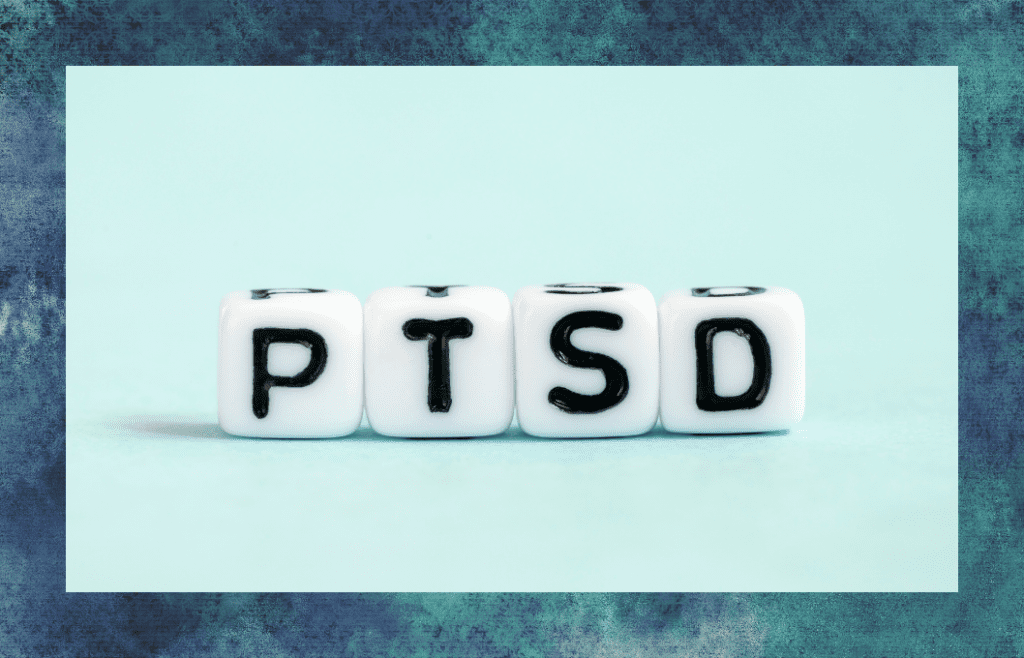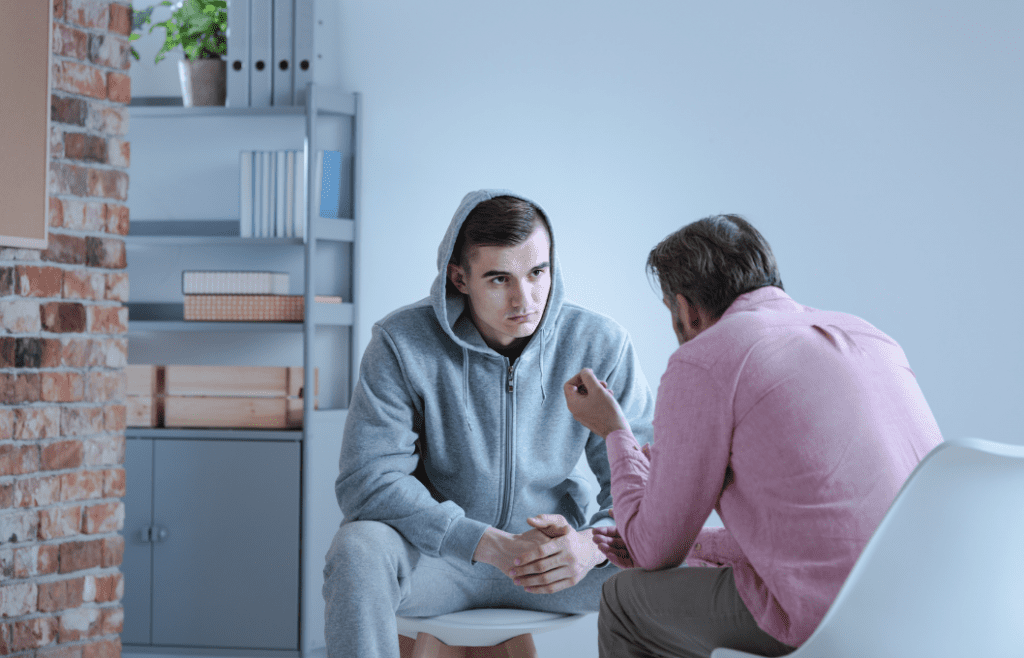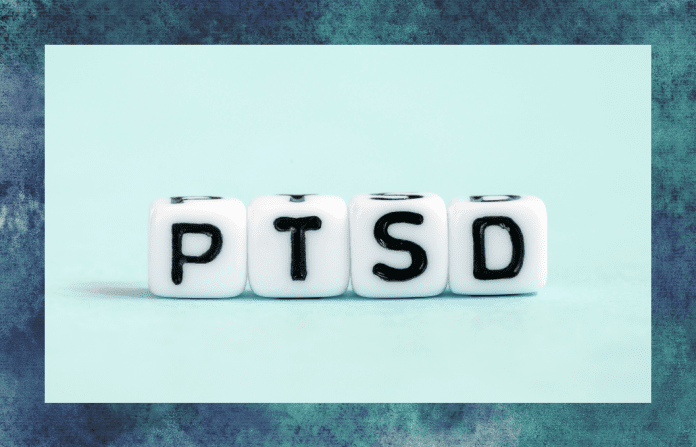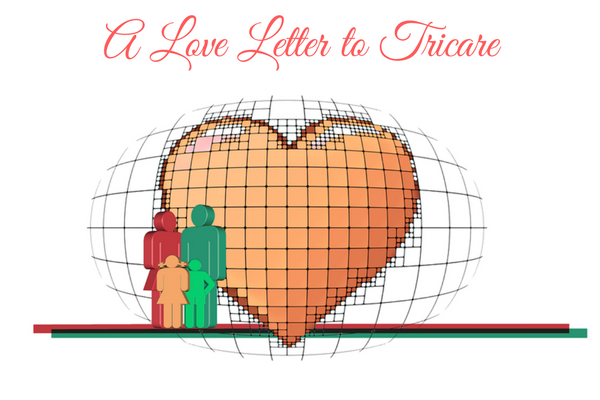The military lifestyle is unlike any other.
Moving every few years provides service members and families with the ability to see the world. It also gives them the unique ability to meet people all around the world. This ability can overshadow the pain a lot of people experience from being separated from their close friends and family members back home. Constant moving, deployments, and concerns of your service member’s safety can fill your thoughts with uncertainty, stress, and fear.
Often, soldiers who return from deployments suffer from PTSD. While overseas, they may cope with their symptoms of PTSD by turning to drugs and alcohol. When they return, they may continue down that same negative spiral resulting in dependence and addiction.
However, it’s not just soldiers who are deployed that can develop PTSD.
Military spouses, children, people in different career fields…anyone can develop it. It doesn’t matter how your loved one developed PTSD, what is important is how you can support your loved one who is suffering from PTSD and turned to drugs or alcohol to cope.
 What is PTSD?
What is PTSD?
Posttraumatic stress disorder (PTSD) is a psychiatric disorder that occurs in people who have experienced or witnessed a traumatic event. Examples of traumatic events are serious car accidents, being threatened with death, natural disaster, sexual violence, rape, terrorist act, war/combat, or a serious injury.
Signs a Loved One has PTSD
PTSD tends to develop differently in each person and can appear years later. However, there are four main categories that symptoms tend to appear in. These are recurrent intrusive reminders of the traumatic event, extreme avoidance of things that remind you of the traumatic event, negative changes in your thoughts and mood, and being on guard all the time, jumpy, and emotional.
Recurrent Intrusive Reminders
Recurrent intrusive reminders of the traumatic event may be distressing thoughts, nightmares, and flashbacks where it feels like they are reliving the event. This person may experience extreme emotional and physical reactions to something that reminds them of the event such as uncontrollable shaking, heart palpitation, and panic attacks.
Extreme Avoidance
Your loved one may be experiencing PTSD by avoiding things that remind them of the event. They might avoid people, places, thoughts, or situations that remind them of the bad memories. They might withdraw from friends, family, or even lose interest in everyday activities.
Negative Changes in Thoughts and Mood
You may notice changes in his or her thoughts and moods. This can look like them having exaggerated negative beliefs about themself or the world. He or she may feel afraid, guilty, or shameful. Over time, it might seem like they are unable to have positive emotions or ever seem happy anymore.
Being On Guard, Jumpy, and Emotional
Your loved one may appear irritable or angry a lot. Maybe they have developed a short temper that they never used to have. They might engage in reckless behaviors or have a hard time sleeping. Sometimes, they might experience difficulty concentrating and appear to be hypervigilant.
Using Drugs or Alcohol to Cope
Unfortunately, there is no easy cure for PTSD. It disrupts every aspect of a person’s life and can strain relationships, ruining physical health, and ruining a person’s ability to function at work. It causes a person to isolate themself; it can even cause them to end their life to end their suffering.
Turning to alcohol or drugs can be tempting. They are used to help numb the pain and memories or to attain better sleep. But using drugs or alcohol to cope can actually make PTSD symptoms much worse. They exacerbate emotions and physical symptoms.
How to Help Your Loved One
Luckily, there are a few things you can do with your spouse to help ease their PTSD symptoms and hopefully help them stop using drugs or alcohol to cope.
Exercise
Exercise can play a key role in helping your loved one overcome PTSD by helping them regain confidence and reduce depression and cardiovascular disease. Low to moderate-intensity exercise can help elevate mood, reduce anxiety, and act as an overall stress buffer. You can even exercise with them; try going for a bike ride, a run, or a walk together. Doing things together can help show your loved one you care about them and want to work with them to help pull through their difficult time.
Yoga
Branching off of the exercise category is yoga. Yoga is the most commonly used mind-body approach. It combines physical activity, mindfulness, relaxation, and breathing exercises to give your loved one a holistic approach. This can aid not only in easing their PTSD symptoms; it can also help them naturally overcome their drug or alcohol addiction. Yoga has been found to reduce cortisol levels in patients with PTSD, which helps to reduce their symptoms. Through breathing techniques, it calms the nervous system and reduces hypervigilance symptoms. Yoga not only calms the physical symptoms of anxiety but also the mental ones.
Yoga is something that you and your loved one can do together as well. Someone trying yoga for the first time might feel nervous or out of place. Going together might help them feel more comfortable trying something new and can even be beneficial to you!
Massage
Relaxation through massage is a great way to help someone reduce stress, ease symptoms of anxiety and depression, sleep better, and increase their overall mood. Getting massages can also help reduce physical pain, tension, and irritability. Additionally, massages enable people who suffer from PTSD to experience a sense of comfort, safety, and control that they might not be able to experience on their own. Massages are something you can surprise your spouse with or even book a professional couple’s massage for you both to enjoy and experience the benefits.
Healthy Eating
Oftentimes, a person suffering from PTSD will eat for emotional reasons and have a poor diet. PTSD itself causes inflammation, oxidative stress, and brain chemical irregularities which are similar to having a substance addiction. Healthy eating not only reduces symptoms of PTSD but also drugs and alcohol. Therefore, it is important to eat a balanced diet filled with fruits and vegetables.
Another way to eat healthily is to think of only eating whole foods. Whole foods are fruits, vegetables, legumes, whole grains, nuts, and seeds that have not been processed or tampered with in any way. Changing the way you eat at home together is a great start to helping your spouse get their diet back on track and manage their PTSD symptoms.
Additional Help
Even with these tools and lifestyle changes mentioned above, it may not be enough to overcome PTSD symptoms and/or eliminate drug or alcohol abuse. Your loved one might continue to use drugs or alcohol to drown out symptoms of PTSD, which can result in dependence and addiction.
When this happens, it takes much more than just willpower to overcome addiction’s grip. Fortunately, finding a high-quality rehab for drug and alcohol abuse can help your spouse overcome his or her addiction. Rehab clinics will provide your loved one with all the support they need to overcome their addiction. Mental health counselors are well equipped to help your loved one through their PTSD as well as their substance addiction. They, along with trained medical professionals, will provide your spouse with all the tools they need to get their life back.
 If you or someone you know is struggling with PTSD and/or alcohol or substance abuse, please do not wait to get help.
If you or someone you know is struggling with PTSD and/or alcohol or substance abuse, please do not wait to get help.
Find help through your local military treatment facility or doctor. Military OneSource is another excellent resource, especially for military family members. You can also seek help with any of these resources:
- American Psychological Association
- Anxiety and Depression Association of America
- Defense Centers of Excellence for Psychological Health & Traumatic Brain Injury
- Psychological Health Center of Excellence
- National Center for Post Traumatic Stress Disorder (PTSD)
- National Institute of Mental Health
- National Sexual Violence Resource Center
- Navy and Marine Corps Public Health Center
 Patrick Bailey is a professional writer mainly in the fields of mental health, addiction, and living in recovery. He attempts to stay on top of the latest news in the addiction and the mental health world and enjoy writing about these topics to break the stigma associated with them.
Patrick Bailey is a professional writer mainly in the fields of mental health, addiction, and living in recovery. He attempts to stay on top of the latest news in the addiction and the mental health world and enjoy writing about these topics to break the stigma associated with them.
Website / Blog URL: http://patrickbaileys.com
Twitter: https://twitter.com/Pat_
LinkedIn: www.linkedin.com/in/patrick-













